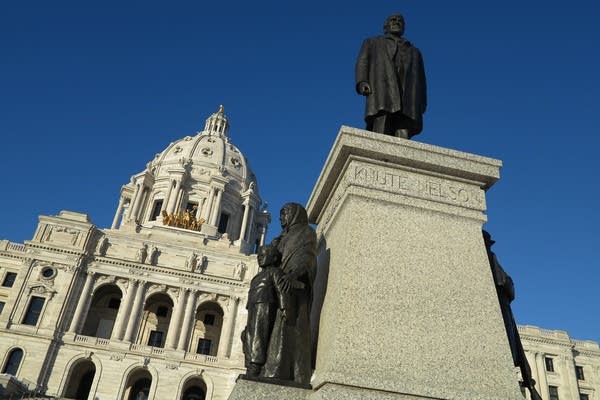Bill targets underperforming Minn. charter schools
Go Deeper.
Create an account or log in to save stories.
Like this?
Thanks for liking this story! We have added it to a list of your favorite stories.

Increased accountability could be on the way for Minnesota's charter schools. But what shape that will take is going to be up for debate in the next legislative session.
Critics of underperforming charter schools say state law isn't tough enough. They're pushing a measure that would flag poor performing charters for closure.
If approved by the Legislature it would pressure charter school authorizers, the organizations that oversee the schools, to close chronically underperforming charters.
Since the first charter school in the nation opened in St. Paul in 1992, charters in Minnesota have grown rapidly, especially in the Twin Cities metro area. Today there are more than 150 charters statewide.
Turn Up Your Support
MPR News helps you turn down the noise and build shared understanding. Turn up your support for this public resource and keep trusted journalism accessible to all.
•Report: In racially diverse suburbs, charter schools getting whiter
Charter schools are public schools, but they are freed from some of the requirements that traditional schools must follow. By design, that autonomy is intended to allow charters to try innovative approaches like longer school days or creative curriculum.
As the charter system has grown, so have concerns over how the schools perform, academically and financially.
Overall, students at charter schools don't do as well academically as students in traditional district schools, according to research by Myron Orfield, director of the University of Minnesota's Institute on Metropolitan Opportunity.
"The problem is the vast majority of charters are underperforming and maybe 25, 30 percent of them are just really terrible and they go on from year to year," said Orfield, one of the biggest critics of charter schools in Minnesota. "They're considerably worse than the public schools."
Orfield said Minnesota law doesn't adequately deal with chronically underperforming charters.
On that point, Brian Sweeney, director of external affairs for Charter School Partners, a group that helps start and support new charter schools, agrees. But he said bad charter schools hurt the entire movement.
"That's why we think we need to clean up a percentage of the charter schools and when necessary close them down," he said.
Sweeney's group backs the bill that would compel authorizers to close underperforming schools. If it were law, 17 of the state's 157 charters would be flagged for closure. However, charter schools that that have a high number English language learners or special education students would be exempt.
The measure wouldn't automatically close a bad charter school, but it would make the school's authorizer explain why it should be kept open, said state Sen. Terri Bonoff, the bill's author.
"It really does place a great deal of attention on these underperforming schools," said Bonoff, DFL- Minnetonka.
Eugene Piccolo, executive director of the Minnesota Association of Charter Schools, a group that represents about 60 percent of the state's charters and some of their authorizers, doesn't think the bill is necessary.
Piccolo said the whole point of having authorizers is to create a level of accountability. Under current law authorizers decide when to close a charter school, and he said they should retain that authority.
"We believe that's the role of authorizers," he said. "So if we're going to put it on automatic pilot then there's no need for authorizing."
Piccolo also said the state law does a good job of keeping authorizers accountable for the performance of charter schools and is about to get better.
•St. Paul charter school's teachers join union
The Minnesota Department of Education is working on a new charter school authorizer evaluation system. It's expected to be in place next year.
Although only in draft form, the proposed new system essentially would score authorizers on how well equipped they are to oversee charters.
"It's going to take a look at what they're doing as a whole with their portfolio of charter schools to make sure that they're performing administratively, to make sure they're performing financially, and most importantly to make sure they're performing academically," said Kevin McHenry, an assistant commissioner at the state Department of Education. Under the evaluation system, the state could prevent authorizers with low scores from opening new schools. But as with state law, the system would leave decisions on charter closure to the authorizers that oversee them.
Lawmakers will get an update on the development of the new system at a legislative hearing on Tuesday.
Here's a link to the bill from the 2013 session. It will be introduced again this year.


